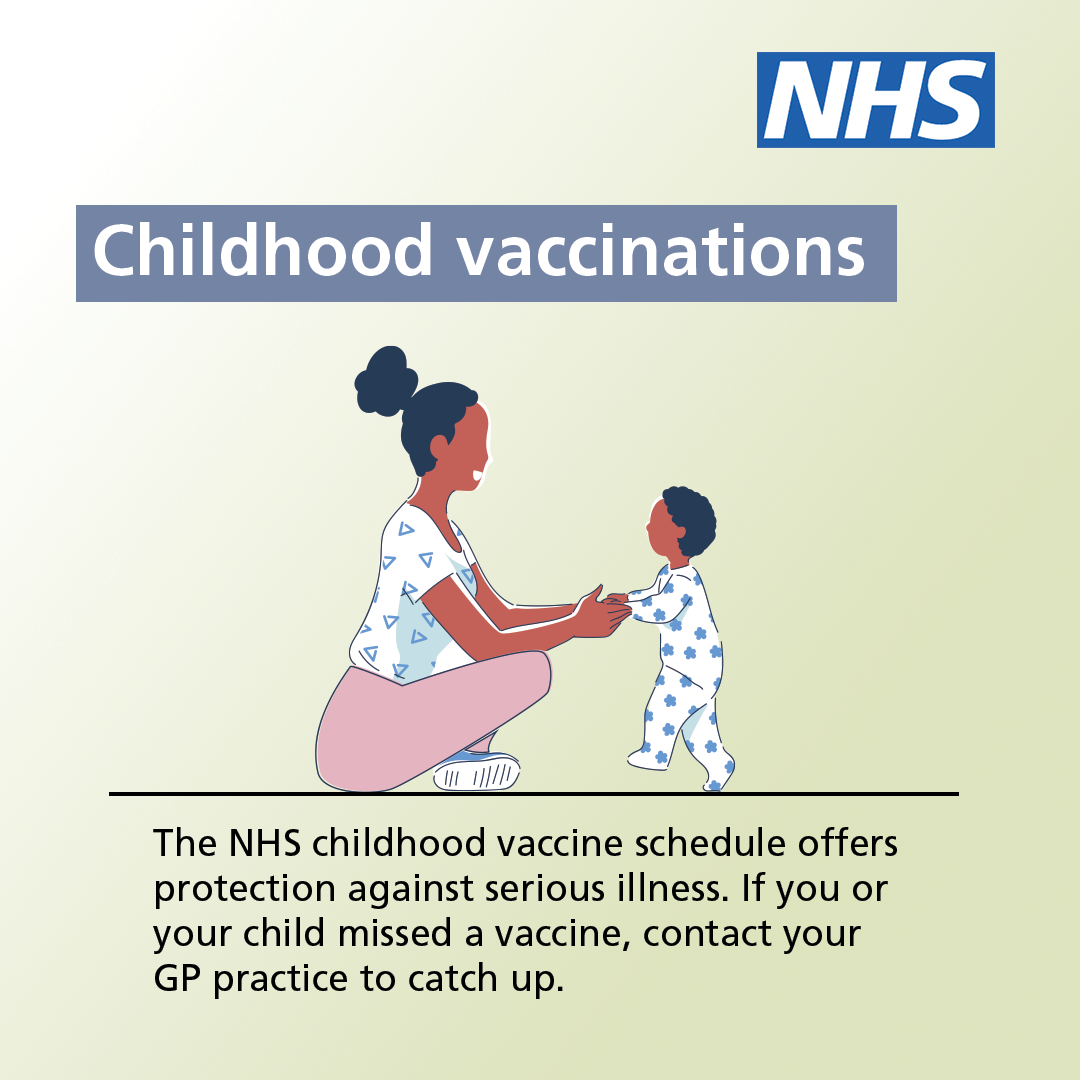From 1st July 2025, the NHS childhood vaccination schedule will undergo several important changes, which parents and guardians of children aged 0 to 5 need to be aware of. The NHS in Lincolnshire is committed to ensuring that families are informed about these updates, so children receive the correct vaccinations at the right time.
What’s changing in the vaccination schedule?
These changes follow recommendations from the Joint Committee on Vaccination and Immunisation (JCVI), aimed at improving the timing and effectiveness of vaccines to better protect children from serious diseases.
Karen Goy, Lead Nurse for Quality and Risk – Vaccination Programme at NHS Lincolnshire Integrated Care Board, explains:
“The revised vaccination schedule will affect a number of childhood vaccines, including MMR, PCV, MenB, and Hib/MenC. We will also introduce a new 18-month appointment, which will begin in January 2026.”
Key changes you should be aware of
- For babies born from 1st July 2024 onward:
- The current 12-month Hib/MenC vaccine will be replaced with a Hib-containing vaccine at 18 months.
- The second dose of the MMR vaccine will now be given earlier.
- For babies born before 1st July 2024:
- These children will continue on the current vaccination schedule, as they will have already received vaccines for these diseases.
- MenB Vaccine:
- The MenB vaccine will now be administered at 12 weeks, instead of 16 weeks. This change is based on recent studies showing that MenB infections are circulating among younger children.
- PCV will be given at 16 weeks to reduce the number of vaccines children receive in one visit.
These changes are designed to offer children the best possible protection at the most critical times, ensuring they are shielded from serious diseases when they are most vulnerable.
A shift in MenC vaccination timing
Due to the success of the MenACWY vaccination schedule for teenagers, MenC cases are now very low in the UK. As a result, the second-year MenC vaccine will no longer be necessary. Instead, children will receive their first dose of MenC during school year 9, as part of the MenACWY programme.
Why vaccines matter
Vaccines are one of the most effective ways to protect against serious diseases. In fact, vaccination ranks just behind clean water as the most effective public health intervention. Vaccines prevent millions of deaths every year worldwide, making them essential for safeguarding public health.
Karen Goy highlights the importance of these changes:
“Childhood vaccines prevent between 3.5 and 5 million deaths annually across the world. However, vaccination uptake in England has been declining for over ten years. These schedule changes are all about putting us in the best position to provide maximum protection against serious, preventable illnesses.”
What parents need to do
From 1st July 2025, parents and guardians must ensure their children are up to date with their vaccinations. This includes crucial vaccines such as MMR and MenB, which provide vital protection against preventable diseases.
If you’re unsure whether your child’s vaccinations are up to date, speak to your GP. Additionally, from January 2026, the NHS will introduce a total of six routine vaccination appointments. These appointments will be scheduled at the following ages:
- 8 weeks
- 12 weeks
- 16 weeks
- 1 year
- 18 months
- 3 years and 4 months
It is essential that your child attends these appointments to receive timely protection against serious and preventable diseases.
Learn more
For further information and guidance, visit the NHS website: NHS Vaccinations and When to Have Them.
By staying informed and following the updated vaccination guidelines, you can help ensure your child’s health and protect them from preventable diseases.
